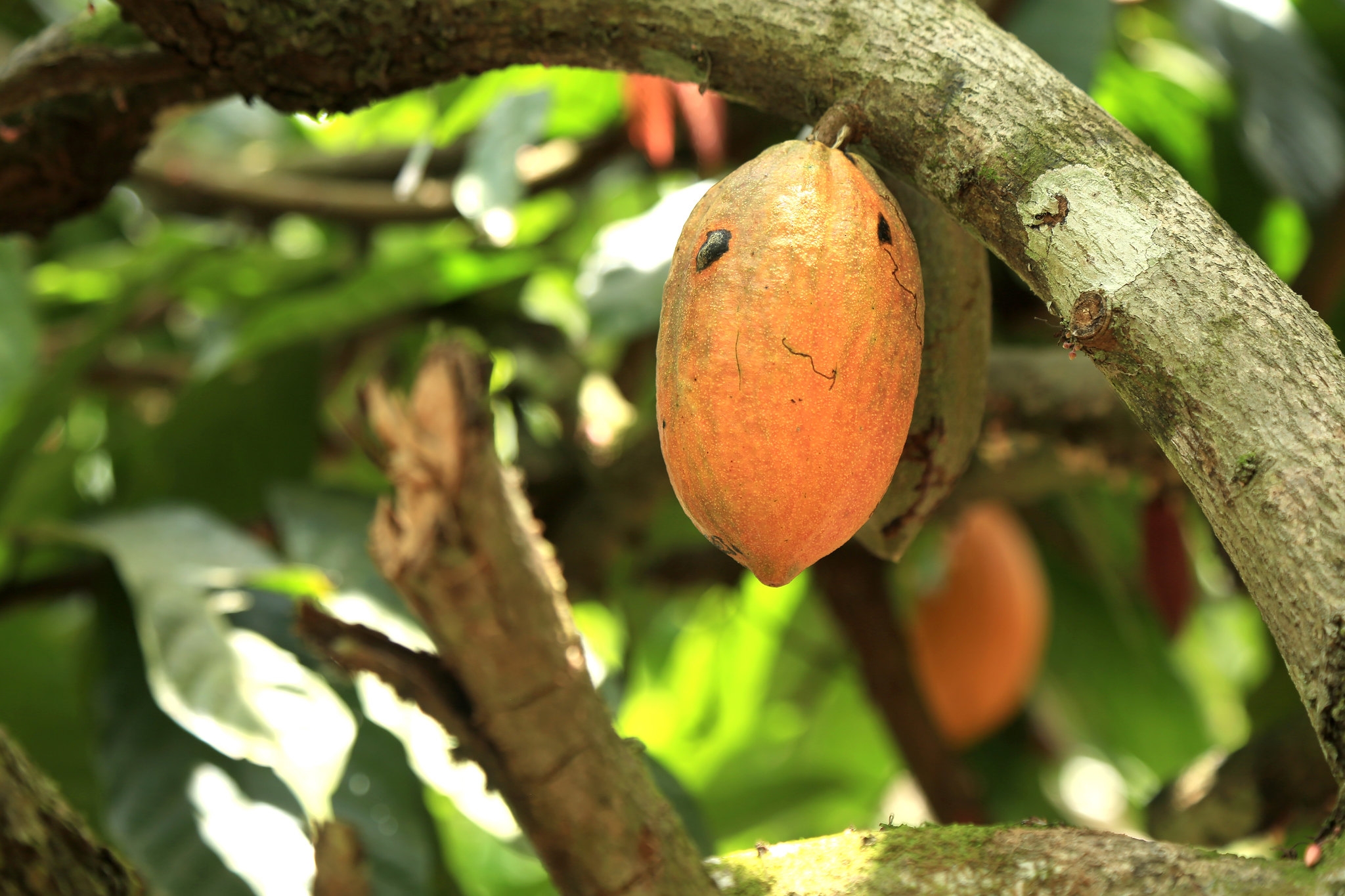
STDF supported this regional project to coordinate efforts aimed at reducing cadmium levels in cocoa and cocoa products to safeguard market access for producers while ensuring consumer safety. Implemented in Colombia, Ecuador, and Peru, with complementary participation from Trinidad and Tobago, the initiative promoted collaboration among national institutions, research centres, and cocoa value chain actors to identify, test, and share effective mitigation practices.
This project evolved from an STDF-funded project preparation grant implemented by the International Cocoa Organization, which aimed to align ongoing work/initiatives in the region, and develop a coordinated regional strategy to mitigate cadmium contamination.
High levels of cadmium in cocoa beans have emerged as a major challenge for Latin American and Caribbean producers. In 2019, the European Union introduced maximum levels for cadmium in cocoa and chocolate products, introducing stricter food safety requirements for exporters, particularly smallholder farmers whose livelihoods depend on access to premium markets.
The project addressed this regional challenge by bringing together key cocoa-producing countries to coordinate research, standardize analytical methods, and share mitigation strategies. It also created a platform for dialogue among producers, laboratories, policymakers, and buyers to ensure that trade, research, and regulatory efforts moved in tandem.
Colombia, Ecuador and Peru were selected for their leadership in cadmium research and mitigation, as well as their export potential. Although Trinidad and Tobago was not eligible for STDF funding, its inclusion as an associated partner leveraged the strong research capacity of the Cocoa Research Centre (CRC) at the University of the West Indies. The CRC’s extensive germplasm collection and technical expertise provided a valuable regional resource for testing, piloting and scaling interventions.
Elements from earlier gender and environmental analyses were considered during project design to promote inclusive and sustainable approaches. This included targeted engagement of women in consultations and training, gender-sensitive communication, and the promotion of youth participation through digital channels. Environmental aspects, such as monitoring soil amendments and remediation practices like liming, were also integrated to support long-term sustainability.
1. Regional Platform and Strengthened laboratory capacity
The project trained 80 laboratory technicians, exceeding its target, on standardized cadmium testing methods using advanced analytical technologies. A low-cost, rapid XRF-based technology validated under the project was officially adopted by the Ministry of Agriculture in Trinidad and Tobago, providing a cost-effective solution for cadmium monitoring.
Technical manuals and standard operating procedures were produced in English and Spanish to institutionalize quality testing practices across participating countries.
2. Expanded training and knowledge dissemination
A total of 173 master trainers were equipped with technical and theoretical skills, transferring their knowledge to over 2,300 cocoa farmers across the four countries. Training combined field demonstrations, workshops and e-learning materials hosted on IICA’s Agriperfiles platform, ensuring long-term accessibility.
3. Mapping and targeted mitigation of cadmium hotspots
Updated or created cadmium hotspot maps in Colombia, Peru, and Trinidad and Tobago, identified contamination drivers and priority zones for intervention. In Colombia, analysis revealed high-risk areas, informing maps that now guide targeted soil and crop management strategies.
4. Innovative risk-based farm categorization
In Trinidad and Tobago, the Cocoa Research Centre designed a four-tier farm categorization model based on average bean cadmium content, linking each category to specific mitigation actions. This data-driven model now serves as a blueprint for adoption across other LAC cocoa-producing countries.
5. Identification of fertilizer-related contamination
Project analyses revealed that both organic and synthetic fertilizers are cadmium sources. These findings underscore the need for strengthened fertilizer regulation, quality monitoring, and farmer education across the region.
6. Enhanced regional collaboration and knowledge sharing
The project established a regional knowledge database on cadmium in cocoa and hosted five webinars that reached participants across 32 countries, fostering a culture of cooperation on food safety and trade compliance across the LAC region.
7. Integration into national plans and long-term sustainability
Nine cadmium mitigation strategies were consolidated into national cocoa sector plans in Colombia, Ecuador, and Peru. In Trinidad and Tobago, the updated plan is under governmental review, with proactive adoption already underway.
1. Strengthen partnerships and laboratory collaboration
Expand cooperation among laboratories, government agencies and private sector actors to share data, validate analytical methods, and scale up effective cadmium management strategies.
2. Standardize and sustain monitoring systems
Continue harmonizing sampling and analysis procedures, promote inter-laboratory validation, and maintain long-term monitoring to track mitigation effectiveness and ensure compliance with international standards.
3. Expand and diversify farmer training
Provide targeted, practical training for farmers on sampling, data interpretation and sustainable practices. Extend train-the-trainer programmes to new regions and develop accessible online modules in collaboration with IICA and national partners.
4. Promote sustainable and cost-effective mitigation practices
Encourage adoption of environmentally sound farming methods that reduce cadmium uptake. Undertake cost-benefit analyses of mitigation options to help farmers choose affordable, effective solutions.
5. Advance research and knowledge exchange
Deepen research on cadmium bioaccumulation and plant uptake and strengthen regional learning exchanges and workshops to support evidence-based policymaking.